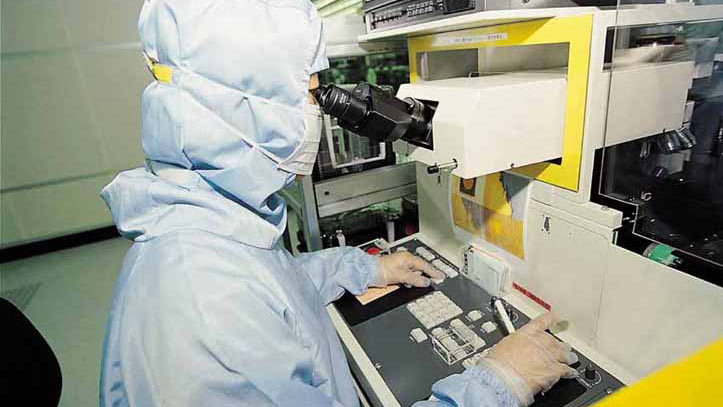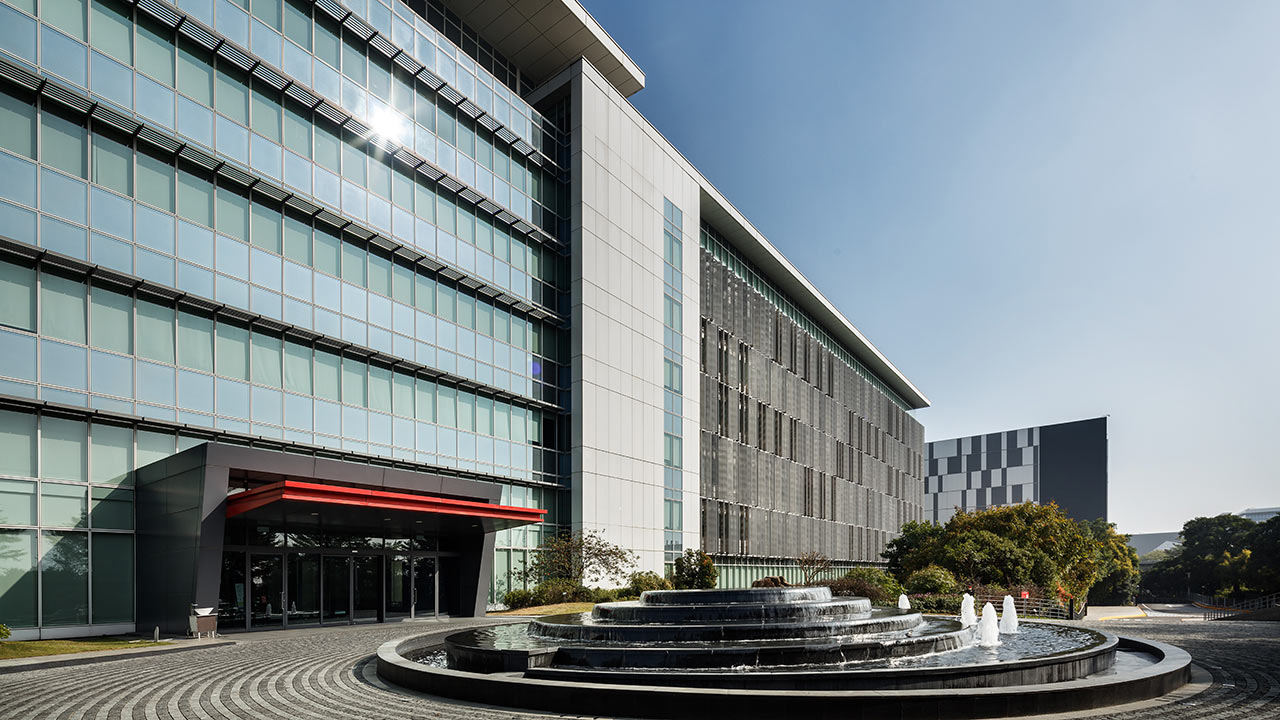TSMC Workers Routinely Asked to Find 'Bomb' Notes in Machinery: Report
To ensure thorough testing and maintenance workers must find all 'bomb' notes or lose 'points'.

TSMC clean room workers are routinely tasked with finding 'bombs' in machinery, according to Taiwan's United News Network (UDN). We have put 'bombs' in inverted commas, as the staff undertaking equipment testing and maintenance will find sticky notes with 'bomb' written on them located on various components instead of potentially explosive devices.
UDN based its report on anonymous TSMC employee chitchat on social media, so we must add a pinch of salt to this eyebrow-raising work practice. However, we understand that the 'bomb-finding' appears to work as follows:
- A supervisor will hide sticky notes inside machines which are part of a regular service/inspection rota
- Workers maintaining and inspecting machines will spot and collect the notes as they work through their daily tasks.
- If any notes are missed, workers will have 'points' deducted. However, we don't know how important positive or negative points are to workers.
The 'bomb' notes are designed to minimize workers signing checklists as completed without actually performing the work. However, you might sympathize with one of the supposed TSMC employees responding to the 'bomb-finding' task by asking, "What kind of punishment is this?" This method of inspiring workers appears to have occurred or been most common at TSMC's 14B factory in the Southern Taiwan Science Park, Tainan.

Various equipment inspections are essential to TSMC employee operations as they seek to minimize downtime for a host of preventable issues. Careful examination is used to check for anything abnormal, with problems like water or acid leakage among the most significant issues noticeable by the eye.
Considering the above, it doesn't seem like the TSMC's 'bomb-finding' activity is reckless. However, potential issues may be that it causes employee stress or that some may find the use of the bomb word tasteless.
UDN reckons the source of the 'bomb' sticky notes idea might be Taiwan's military. The report says that the army routinely does sabotage exercises where critical strategic facilities are infiltrated. Operatives leave spray-painted 'bomb' and 'poison gas' tags in their wake. Obviously, a 'defending' team would seek to minimize the spray paint antics or attend to them rapidly.
As a side note, UDN says that bomb threats are an increasingly popular way for criminals to extort money from organizations and businesses - suggesting many schools, theme parks, and public transport hubs often get targeted with such shenanigans. Thus, using this language in the workplace might not be a great idea.
Get Tom's Hardware's best news and in-depth reviews, straight to your inbox.

Mark Tyson is a news editor at Tom's Hardware. He enjoys covering the full breadth of PC tech; from business and semiconductor design to products approaching the edge of reason.
-
georgebaker437 This actually sounds like a good idea. The negative reinforcement is just stupid, though. A small "value" reward would put as positive spin on this program, cost relatively little, and be met with enthusiasm by the worker. It is always better to lead with a carrot than to drive with a stick.Reply -
Endymio Reply
By that logic, we should simply pay people a small stipend to not commit rape, assault, and murder ... and never criminally charge those who do. I realize a few areas of the country are moving in this direction, but so far that experiment hasn't been very successful.georgebaker437 said:It is always better to lead with a carrot than to drive with a stick. -
King_V Reply
That's an extremely poor analogy. This is incentivizing extra effort, not bribing to avoid effort-toward-violent-behavior.Endymio said:By that logic, we should simply pay people a small stipend to not commit rape, assault, and murder ... and never criminally charge those who do. I realize a few areas of the country are moving in this direction, but so far that experiment hasn't been very successful.
By your logic, there should never be bonuses or merit raises. -
King_V On a lighter note, I, sadly, might be the smartass who'd love shouting out "HOLY CRAP THERE'S A BOMB IN HERE!!"Reply -
helper800 Reply
*TSA glare intensifies*King_V said:On a lighter note, I, sadly, might be the smartass who'd love shouting out "HOLY CRAP THERE'S A BOMB IN HERE!!" -
helper800 Reply
I do not believe he is making a generalized statement on human psychology and the ways it benefits from negative and positive reinforcement. He is being very specific. He is stating that at TSMC and in business, it is better overall to use positive reinforcement instead of negative for this particular circumstance.Endymio said:By that logic, we should simply pay people a small stipend to not commit rape, assault, and murder ... and never criminally charge those who do. I realize a few areas of the country are moving in this direction, but so far that experiment hasn't been very successful. -
Endymio Reply
Since when did doing your job become "extra effort"? They're hired to inspect machinery. This ensures they do it. And companies incentivize their workers by paying them a good salary -- and TSMC's average salary tops $100K per year -- far above the average for the island. I realize the younger generation dearly craves a work environment where no business would dare give an employee a negative performance review, but sometimes it is indeed necessary.King_V said:This is incentivizing extra effort -
bit_user I wonder if this incident (or similar) is what inspired it:Reply
https://www.anandtech.com/show/13975/tsmcs-fab-14b-photoresist-material-incident-550-million-in-lost-revenue
Also, I tend to agree with @Endymio that negative reinforcement for not doing your job properly is a more effective strategy, when the consequences can be extremely dire. Laziness can easily overcome the desire to pursue small positive incentives, and they're very unlikely to go with a big positive incentive, because then they couldn't afford to deploy it as frequently. -
Reply
What if they’re diabetic? 😀TechieTwo said:So make it free ice cream for each post-it note they find.